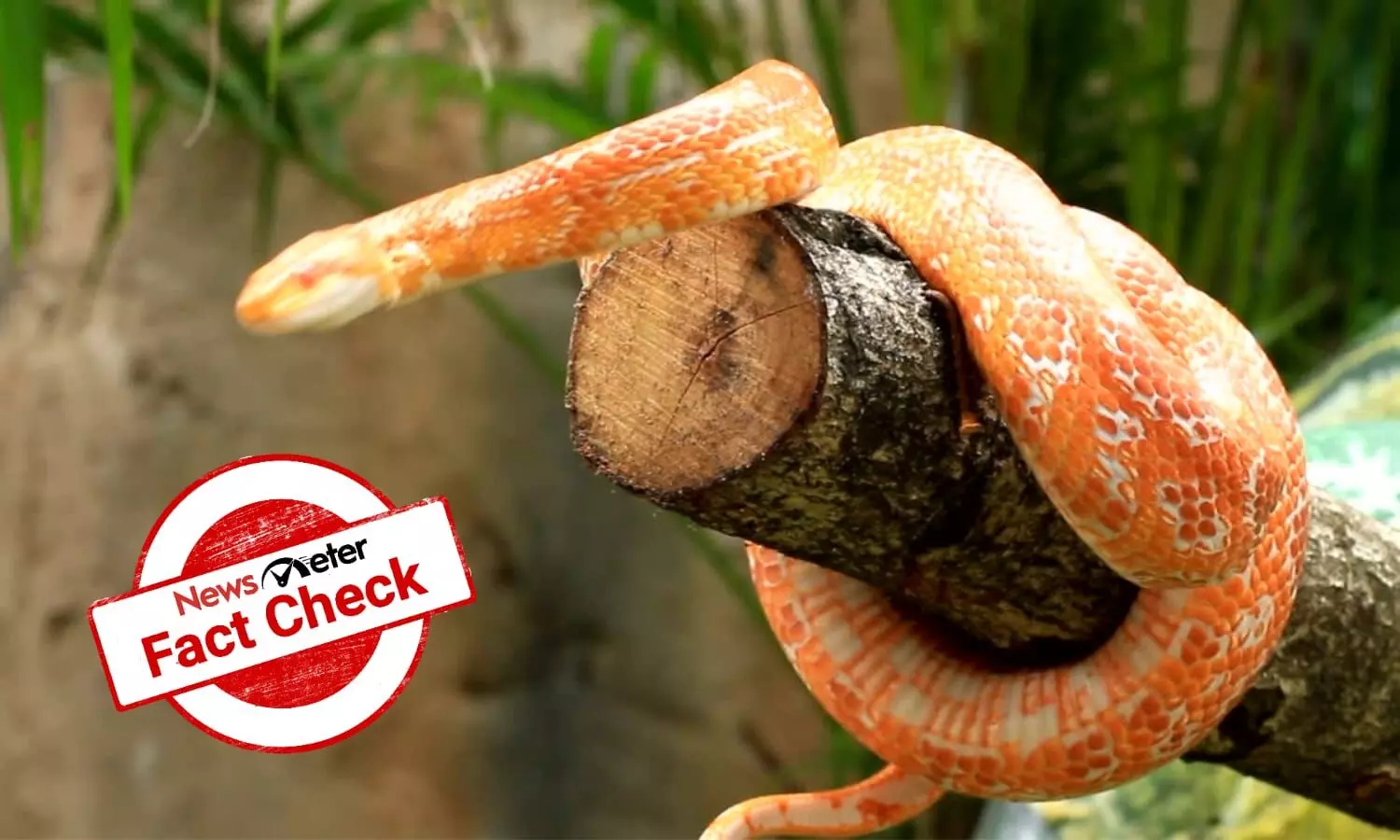Is cashew tree bark an antidote for snake venom?
A post claiming that the bark of a cashew tree is an antidote for snakebite is doing the rounds of social media.
By Sunanda Naik
Hyderabad: A post claiming that the bark of a cashew tree is an antidote for snakebite is doing the rounds of social media.
The viral post claims that chewing the bark of the cashew tree will "destroy snake venom." It works as an antidote for even the deadliest black mamba, it adds.
The post reads, "If you are a victim of snake bites or poison, just look for a cashew tree, use your cutlass to get the bark of the cashew tree, and chew the bark of the tree. As you chew, swallow the water, don't swallow the chaff. It will neutralize every poisonous substance from the snake even if it's an Anaconda bite."
It also advises people to keep the bark, even if it's a dry one, for any emergency.
Let's debunk the claim.
FACT CHECK
Newsmeter performed a keyword search to find studies that supported the viral claim. We found a 2009 study done on mice that concludes that the extract neutralised the viper venom hydrolytic enzymes such as phospholipase, protease, and hyaluronidase in a dose-dependent manner. It further says, "These enzymes are responsible for both local effects of envenomation such as local tissue damage, inflammation and myonecrosis, and systemic effects, including dysfunction of vital organs and alteration in the coagulation components."
The study also said that the extract prevented bleeding, swelling, and muscle trauma at the site of the snake bite. The venom was still lethal, but it took longer for the mice who received the extract to die.
It takes a really long time to develop anti-venoms because each antidote goes through multiple clinical trials. This makes its development expensive and accounts for the "reason we only have antivenom for those snakes that have caused fatalities in the past," says ASI.
WHO warning!
According to the World Health Organisation (WHO), in the event of a snake bite, traditional and herbal treatments should be avoided. "Antivenoms remain the only specific treatment that can potentially prevent or reverse most of the effects of snakebite envenoming when administered early in an adequate therapeutic dose," it said.
There are a variety of venomous snakes in the world and each venom has a different antidote and treatment.
It is highly advised to rush to a hospital that has the proper equipment for treating snakebites.
Hence, the post is misleading.